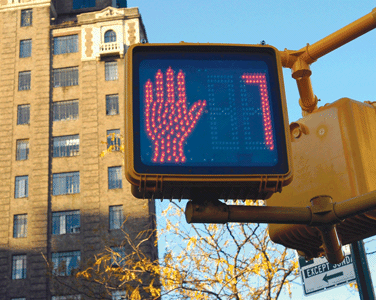Inventors of Blue LED Honored with Nobel in Physics
Wednesday, October 8th, 2014October 8, 2014
Two Japanese scientists and one American scientist have won the 2014 Nobel Prize in physics for their invention of the energy-efficient, environmentally friendly blue light-emitting diode (LED). Named were Isamu Akasaki of Meijo University and Nagoya University and Hiroshi Amano of Nagoya University of Japan; and American Shuji Nakamura of the University of California, Santa Barbara. In a press release annoucing the award, the Nobel Foundation said the blue LED has revolutionized lighting. “In the spirit of Alfred Nobel,” the foundation said, “the Prize rewards an invention of greatest benefit to mankind; using blue LEDs, white light can be created in a new way. With the advent of LED lamps we now have more long-lasting and more efficient alternatives to older light sources.” About 25 percent of the world’s electrical energy consumption goes toward making light.
Like traditional incandescent light bulbs, LED’s give off light in response to an electric current. But LED’s use electric power much more efficiently than traditional incandescents do. When electric current flows through an incandescent light bulb, most of it is transformed into heat. But in an LED, almost all of the electric current results in light. The devices can be used in a variety of applications, from small colored lights on automobile dashboards to bright street lamps. Some LED’s can last 100 times as long as incandescent bulbs and 10 times as long as fluorescent bulbs.

Light-emitting diodes (LED’s) serve as light sources in many traffic signals. Such signals rarely need replacement because LED’s last far longer than incandescent or fluorescent light bulbs. (© Richard Levine, Alamy Images)
Other researchers had created red and green in the 1950′s, but the blue LED stumped scientists for some 30 years. Blue LED’s enable light bulb manufacturers to efficiently create white-colored light. Beginning in the late 1980′s, Akasaki, Amano, and Nakamura worked separately and alone to create the blue LED by using gallium nitride in the layers of semiconducting materials that make up a LED. A semiconductor is a material that conducts electric current better than an insulator like glass, but not as well as a conductor like copper. A computer chip is a piece of a semiconductor, usually silicon, that contains an electronic circuit. Semiconductors are also used to make solar cells and some lasers.
The Nobel Foundation said, “The Laureates challenged established truths; they worked hard and took considerable risks. They built their equipment themselves, learnt the technology, and carried out thousands of experiments. Most of the time they failed, but they did not despair; this was laboratory artistry at the highest level.”
Additional World Book articles:


